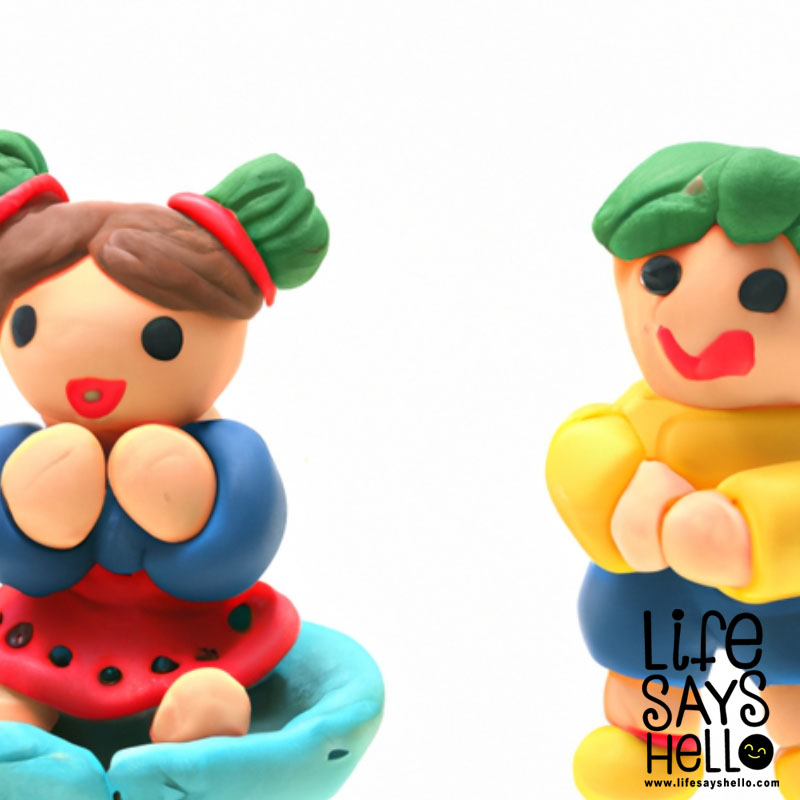Why Parents Are A Child's Most Important Teachers

The role of a parent goes far beyond just raising kids - it involves being a child’s first and most influential teacher in life. As the primary caregivers, parents have an unparalleled ability to shape their children’s growth and education from day one. While teachers play a crucial role as well, no one will ever have the same impact as a parent on a child’s development and success.
Parents influence children’s behavior, impart important life lessons, instill a sense of morality, and provide emotional support, among many other teaching duties. Their ability to tailor teaching and guidance to match each child’s unique needs makes them invaluable as teachers. Though not perfect, parents fill an irreplaceable role in laying the educational foundation for their kids.
The Extraordinary Influence of Parents
From the moment a child is born, their parents begin shaping their development in countless ways. As the primary caregivers, mothers and fathers influence everything from their children’s values to their communication skills. Parenting and teaching go hand-in-hand.
Through their own behaviors, parents demonstrate important life lessons like honesty, kindness, respect, and more. Children observe and mimic their parents’ actions. If mom and dad handle conflict maturely, their kids will learn to resolve disagreements calmly. When parents exhibit compassion, children become more empathetic.
Beyond modeling behaviors, parents directly guide their children’s conduct too. They can encourage sharing, discourage bullying, and teach politeness through simple conversations. Explaining the reasons for rules helps children understand and cooperate. Patiently working through disciplinary issues transforms them into learning opportunities.
Parents also influence children’s thinking and interests. Exposing kids to various activities like sports, music, art, reading, and more allows them to discover their passions. Discussing current events, ethics, and big ideas expands their knowledge. Parents know best how to stimulate their child’s curiosity.
In these countless ways, mothers and fathers leverage their position as caregivers to profoundly influence children’s development, behaviors, values, and knowledge. No teachers will ever match this level of impact. Parents’ extraordinary influence lays the foundation for their kids’ future growth and success.
Instilling Morality and Values Early On
Instilling a strong moral compass is a duty shared by parents and teachers alike. But parents have a unique opportunity to introduce ethical values from the very start of a child’s life. As the primary ethical examples for their kids, parents play an outsized role in developing their children’s morality.
Young children watch their parents intently and absorb the lessons demonstrated through their behaviors. If parents exhibit honesty, fairness, and integrity, their kids will intuitively internalize these values too. But children also learn right from wrong through direct instruction from mom and dad.
Parents teach the standards of acceptable conduct in society by establishing rules and enforcing them consistently. This gives children an understanding of discipline and justice. And when parents explain the reasons behind the rules, kids better comprehend the purpose of ethical behavior.
Having countless conversations about morality gives parents the chance to shape their children’s character. Chatting about a news story can reinforce why lying is unacceptable. Discussing how to treat a friend teaches sensitivity. Parents can find teaching moments in daily life.
Additionally, parents guide children’s morality through religion and spirituality. Attending religious services together or praying as a family passes on faith-based values. Parents serve as spiritual mentors.
While teachers play a role in moral education later on, parents lay the foundation from toddlerhood. Their position as primary caregivers and ethical examples gives them an unmatched opportunity to develop strong morality in their children early on.
The Advantage of Time Spent Together

On top of their extraordinary influence and moral leadership, parents benefit tremendously from the simple factor of time spent with their children. Kids aged 5 to 18 spend just 14% of their time in school, while parents have them at home for the remaining 86% according to a recent study. This allows mothers and fathers far more opportunities to teach their children directly.
During school hours, teachers must divide their attention among dozens of students. But parents can provide one-on-one tutoring tailored specifically to their child’s needs. Helping with homework each night reinforces the lessons from school. This individualized support improves academic success.
The sheer amount of time at home also enables parents to teach life skills that are never addressed in school. For example, parents can teach practical abilities like cooking, laundry, and money management. And they pass on cultural knowledge through family traditions.
Even discipline becomes an opportunity for growth with parents’ advantage of time. Dealing with misbehavior in a calm, consistent way provides kids with structure. And the more time parents spend guiding children through challenges, the more lessons they will learn.
Free time on weekends and holidays provides parents with even more teaching moments. Family trips turn into mini history lessons. Gardening together shares the science of nature. Building toys applies engineering and math concepts. Regular activities make learning a natural part of life.
Thanks to the extensive time spent together, parents can take advantage of everyday moments to broaden their children’s education far beyond academic lessons taught in the limited hours at school. The time factor gives parents a unique edge as teachers.
Providing Emotional Support
In addition to guiding academic growth, parents play an equally crucial role supporting their children’s emotional needs. This compassion provides an environment where kids feel safe to take risks and learn without fear of judgment. The unconditional love of parents creates openness to growth.
When children struggle with self-confidence, parents build them up with genuine praise. If they fail at something, parents reassure them with encouragement to try again. And when kids face peer pressure, bullying, or other social challenges, parents provide a safe space to talk through problems.
Having endless heart-to-heart conversations allows parents to know their children deeply. This helps them provide tailored emotional support. Parents can sense when something is bothering their child and proactively offer guidance. No teacher could ever achieve this level of intimate understanding.
Parents also use their intuition to adjust their approach to fit their child’s changing needs. As kids mature, parents adapt how they show affection or set boundaries. A mother knows exactly how to soothe her toddler when upset. This emotional attunement makes parents excellent teachers.
By giving children the courage to make mistakes and overcome challenges with their unwavering support, parents empower their child’s growth. Their compassion provides the foundation for brave learning.
The Ability to Personalize Teaching
Unlike teachers who must educate large groups of students together, parents can provide individualized teaching tailored to each child’s unique interests, struggles, and learning style. This personalization makes parents incredibly effective as teachers.
For example, parents notice early on whether their child is visual, auditory, or kinesthetic learners. They can then target lessons accordingly. Turning singing into a movement game benefits kids who learn best through moving. Adding diagrams helps visual learners grasp concepts. Parents adapt organically.
Similarly, parents understand their children’s strengths and weaknesses intimately. They know which skills to focus on improving and which subjects inspire their kids the most. Targeting teaching to maximize their children’s talents and strengthen weaknesses accelerates learning.
The flexibility parents have also allows them to make learning fun. Turning household chores into races adds excitement. Using a child’s obsession, like dinosaurs, to teach broader lessons builds engagement. Parents know how to make even tough topics enjoyable.
Unlike the rigid school curriculum, parents can customize the educational approach completely around how their unique child learns best. This personalization enables parents to be incredibly effective as teachers guiding their kids to success.
The Irreplaceable Role of Parents
Of course, parents are not perfect as teachers. Some may lack teaching experience or push their own rigid views. Others feel too overwhelmed by the responsibility of homeschooling full-time. Valid critiques exist.
But absolutely no one can replace the irreplaceable role parents fill as their children’s first and most influential teachers in life. Parents know their kids deeply and spend endless time together forming tight emotional bonds. This provides the foundation for meaningful life lessons.
While teachers certainly make huge impacts as well, especially on academic topics, no one will ever match the extraordinary influence parents have on their children’s growth. Parenting and teaching are inextricably linked.
By taking advantage of their position as caregivers and role models, parents can leverage everyday moments to shape their children’s behaviors, knowledge, interests, values, and emotional resilience from the start. They have what it takes to be incredible teachers to their kids.
So embrace the enormous responsibility and power you have as a parent to profoundly influence your child’s development. With patience and compassion, you can nurture your children into thriving, successful, moral adults. Parenting and teaching go hand-in-hand. Make the most of this special chance to change your child’s world.
Why Parenting And Teaching Are Inseparable
From the first lullaby at bedtime to lectures on taking responsibility, parents begin educating their children from day one. And this special teaching relationship continues throughout childhood and beyond. Though their styles and focuses differ from professional teachers, parents play an equally vital educational role for their kids. The two roles of nurturer and teacher are inextricably interlinked for parents.
As their children’s first and most powerful role models, mothers and fathers influence everything from behavior to knowledge to interests through their parenting approach. No teachers could ever match this level of impact. Parents also spend far more time with kids than teachers do, taking advantage of countless daily interactions to impart important life lessons.
Parents provide the emotional support children need to take risks and learn bravely. And they have the flexibility to completely personalize teaching around each child’s unique needs. While not perfect, parents fill an irreplaceable role as teachers to their kids. The jobs of parenting and teaching blend together into one beautiful, lifelong opportunity.
Parents As Powerful Role Models
From birth through adulthood, children closely observe their parents’ every move. They absorb lessons about life simply from watching their mom and dad’s behaviors day in and day out. Parents serve as their children’s first and most powerful role models.
If parents treat others with kindness and integrity, their kids intuitively learn to do the same. When mothers and fathers handle disagreements calmly, their children pick up positive conflict resolution skills. Values like honesty and respect are passed on through parents’ actions.
Beyond modeling important behaviors, parents also influence their children’s knowledge and interests hugely through exposing them to new ideas and activities. A father who discusses current events during dinner expands his children’s understanding of the world. And a mother who shares her love of reading inspires an early interest in books.
Even parents who don’t think of themselves as teachers subconsciously influence their children’s development in countless ways. The parenting approach shapes everything from personality to values to knowledge. Mothers and fathers teach through the experience of raising their kids.
While professional teachers play important roles as well, no one will match the extraordinary influence parents have on their children’s growth simply by being present in their lives as caregivers.
Taking Advantage of Time Together
On top of serving as powerful role models, parents also have a major advantage when it comes to teaching their children: time. Kids aged 5 to 18 spend just 14% of their waking time in school on average, according to a recent study. Parents have the remaining 86% at home to impart life lessons.
Having children under their roof for huge chunks of time gives parents endless opportunities to teach through everyday moments. Cooking dinner together shares measurement and chemical reaction concepts. Doing laundry teaches responsibility. Helping with homework reinforces what children learn in school.
The extensive time together also allows parents to pass on cultural knowledge and life skills never taught in the classroom. Parents can share family traditions, model self-care routines, and guide children through handling emotions. These lessons happen naturally at home.
And when it comes to discipline, parents are able to take advantage of time to turn consequences for poor behavior into meaningful learning experiences. Teachers simply don’t have the same time or context.
While a teacher must divide attention between dozens of students simultaneously, parents can provide individualized attention focused wholly on each child. This time advantage enables more meaningful teaching.
Providing Emotional Support
For children to learn and grow, they need to feel safe taking risks and making mistakes. Parents play an irreplaceable role providing the compassionate emotional support kids need to embrace life’s challenges fearlessly. This sets them up for success.
Whenever children struggle with something, parents reassure them with loving encouragement. If they become frustrated and want to quit, parents build up their self-confidence. And when kids experience bullying or other social problems, parents offer a safe space to talk it through.
Having endless heart-to-heart conversations helps parents deeply understand their children’s needs. They can then tailor emotional support to lift each child up. This intimate bond provides the security kids need to learn bravely.
Parents also intuitively adapt how they show affection and set boundaries as children mature. They have an emotional attunement with their kids that teachers could never achieve. This compassion makes parents excellent at nurturing growth.
By giving kids courage and resilience through unconditional love, parents empower their children to take the risks necessary for meaningful learning and development.
Customizing Teaching Around Each Child
Unlike teachers who must adhere to standardized curriculums, parents can completely customize their teaching approach around each child’s unique interests, struggles, and learning style. This flexibility makes parents incredibly effective as teachers.
For example, some kids learn best through visual aids while others through kinesthetic activities. Parents get to know their children’s learning preferences early on and can adapt lessons using songs, diagrams, games, and more accordingly. Turning homework into physical play reinforces the material.
Similarly, parents become experts on their kids’ strengths and weaknesses. They know which skills to target and which subjects inspire their children the most. Parents can maximize talents and strengthen challenges through personalized teaching.
The flexibility also allows parents to make learning fun. Incorporating a child’s obsession like dinosaurs into math lessons builds more engagement than worksheets alone. And turning chores into races adds excitement. Parents know how to teach in ways that click with each child.
This ability to completely customize teaching around each child’s needs enables parents to be extremely effective at educating their kids.
Parents Are Irreplaceable Teachers
Certainly parents are not perfect as teachers. Some lack teaching skills, time, or patience. Others try to force their own rigid views. Valid critiques exist.
But absolutely no one can replace the irreplaceable role parents fill as their children’s first and most influential teachers in life. Parents know their kids deeply and spend endless time together forming tight bonds. This relationship makes their teaching impactful.
While professional teachers make huge impacts in formal education, especially on academic topics, no one will ever match the extraordinary influence parents have on their children’s growth. The jobs of nurturing and teaching blend together for parents.
The truth is, parenting and teaching are inseparable. From infancy through adulthood, children absorb life lessons from observing their parents’ behaviors. Mothers and fathers use their countless daily interactions to impart knowledge and values. Their emotional support emboldens kids to learn bravely. And they provide personalized teaching tailored to each child.
Parents have a special power to profoundly shape their children’s development. With patience and compassion, they can nurture happy, thriving, successful adults. Parenting and teaching are integrally connected. So embrace this incredible chance you have to change your child’s world through education.




Comments